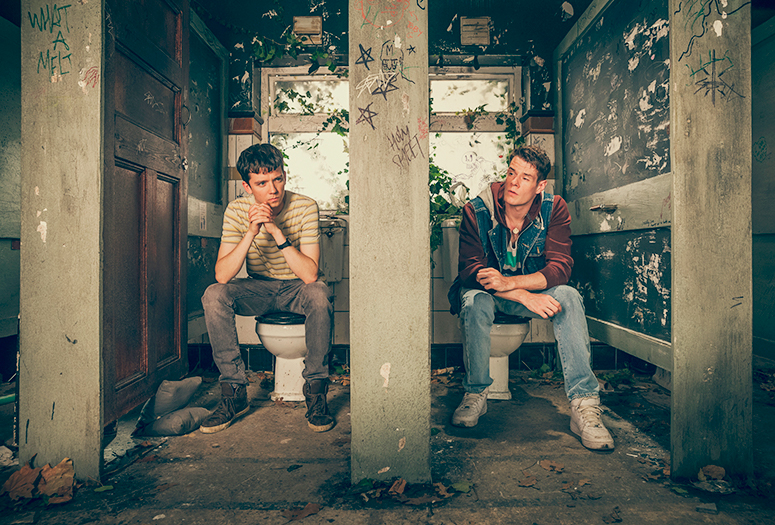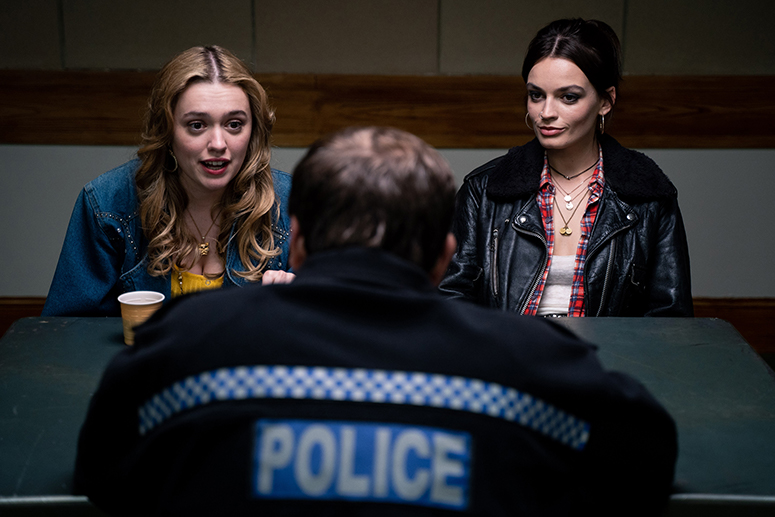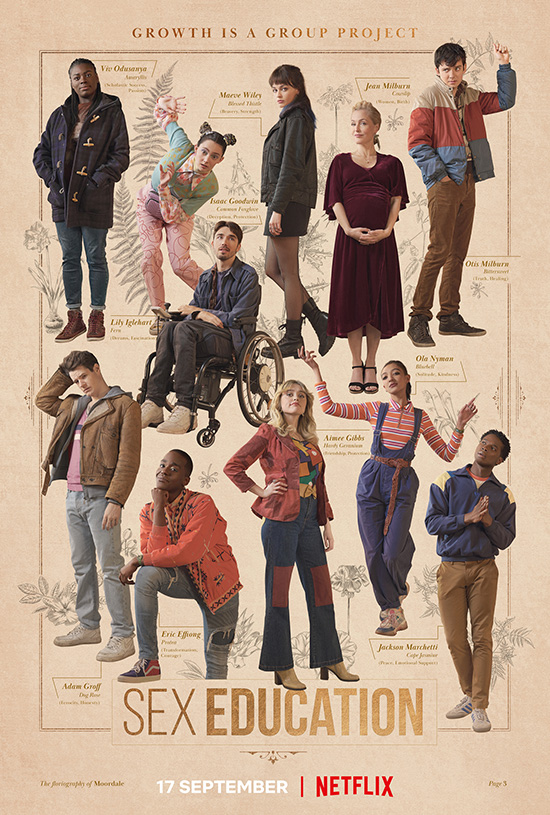Kalat Klasrum: Everything ‘Sex Education’ taught us about sex and love (so far)
Among the many corners of Facebook lies a private group ingeniously called Subtle Kalat Section (SKS), where users share kalat stories and tips, as well as pose questions to its 10,000 members. While it’s easy to dismiss it as just another gauche online space, SKS is anything but.
“I want it to be a safe space for every member,” explained 20-year-old Audrey Calitis, who created the group last April. “Marami sa group nagsasabi na (doon) lang sila nakakapag-share and vent out. May mga educational posts din, may matutunan ka sa bawat post and sa advice ng members.”
With its non-judgmental approach, the group is quickly becoming a vital resource for many young Filipinos. Audrey said the group administrators are really strict about members being at least 18 years old, and they diligently moderate content and comments. It pays off, though — group member Scarlette called SKS “one of the best support groups in social media.”

Sev, a 21-year-old from Las Piñas, once consulted the group on what same-sex partners should bring when checking in to motels. “Some members took their time to provide answers that were really helpful with planning,” they said. “It makes me happy that a group exists where people can be open about sex and their experiences. It helps in removing the taboo around sex.”
The group’s format is not dissimilar to Otis and Maeve’s sex clinic on the Netflix series Sex Education — like SKS members, the students of Moordale seek guidance about matters of the heart, among other body parts.
Because the sex ed curriculum in the Philippines is still abstinence-based, quite a number of respondents said they learned about the ‘morning after’ pill, the importance of safe abortion clinics, and putting on a condom from the series.
Sex Ed easily won the hearts of critics and audiences, garnering 40 million views in the first month of Season 1’s release in 2019. Media outlets took notice of its subversion of high school tropes, and award-giving bodies have given nods to many of its cast members. But it seems the show’s main selling point is how much it takes its title seriously.
Clark, a 22-year-old from Manila, said their favorite thing about the show is its healthy depiction of sex, saying that the creators “seem really mindful of their audience.” Twenty-year-old Lavinia lauded it for being educational, especially since “the knowledge it imparts (in) its viewers is not usually discussed at home.”

Because the sex ed curriculum in the Philippines — if it gets implemented in schools at all — is still abstinence-based, quite a number of respondents said they learned about the “morning after” pill, the importance of safe abortion clinics, and putting on a condom from the series. “Other countries had that instructional lesson on how to put on a condom while they were in high school. I think that would be very helpful (to have here as well),” said 21-year-old student Mau.
Others also mentioned some nuances of sex that may be too unscientific for school and too unglamorous for Hollywood sex scenes, like consent and communicating what you want to do in bed with your partner. Rectal douching, a process done usually before anal sex that involves flushing out one’s rectum with water, was the most frequent answer.
“I think these kinds of episodes featuring LGBT sex are important since these are not often discussed among LGBT youth, and maybe even adults,” Clark said. “Though it’s alarming to realize that most of the gay smut fanfics I read don’t mention (douching), and this might lead others who engage in MLM (men loving men) sex to do the activity uninformed and unsafely.”
The show also shines a much-needed spotlight on female pleasure, with some viewers saying they learned about fingering, the different ways to pleasure a person with a vagina, and that it’s okay for women to masturbate. “I know a woman (who) masturbates but she always says she’s ashamed of it. At first I didn’t know what to tell her because I was not well-informed about it, but because of Sex Ed, I was able to alleviate some of her concerns,” shares Lavinia.

Mau also deemed important the storyline where Aimee realizes she doesn’t know what she wants during sex because she always caters only to the desires of her male partners. These answers reflect the reality that what we know about sex — whether we learned about it in school, in mainstream media, or in conversations with others — is heavily influenced by heterosexual sexual scripts that are often focused on penile pleasure.
Similarly, among the people I spoke with, both men and women developed a deeper understanding of sexual assault because of Aimee’s experience in Season 2.
One viewer shared that she didn’t know being ejaculated on in public can already be considered sexual assault; she had a similar experience and she was very passive about it, adding, “It wasn’t until Maeve came in and the police acted on it that I realized how serious it was.”
Another shared that she also had a similar experience and it was a very emotional episode for her: “It helped because they showed (why we shouldn’t) disregard how upset or scared you are. You are not maarte or madrama or OA and you shouldn’t be told to toughen up when there is still trauma (that is) not addressed.”
Along with audiences realizing that sex “isn’t a big deal,” “is fun” and that “it’s okay to ask about it,” the show also demonstrates that “being a virgin isn’t something we should be ashamed of.”
“It’s okay not to have sex because it’s your choice and it’s your body. You don’t have to do it just because everyone else is doing it,” said Willen, a 20-year-old student from Cavite. He also mentioned the scene in Season 2 where an asexual student reaches out to Jean Milburn thinking she might be “broken” because she doesn’t want to have sex. “I love Jean’s response; she goes, ‘Sex doesn’t make us whole. So how could you ever be broken?’ Ugh, chills! She reiterates how some asexual people still want romantic relationships but not the sex bit, and it is a valid choice.”
Instead of pathologizing its characters’ behaviors, the series takes them — and the viewers who see themselves in these characters — seriously. Twenty-six-year-old Maia said the series “mirrors reality a lot more than we realize.” Maybe that’s true in more ways than one: the show gets many aspects of modern sex life right, but what it captures perfectly are the questions young people ask about their bodies, sexualities and relationships — and the measures they will take to get answers in a culture that continues to pretend these questions don’t exist.
Photo courtesy of Netflix


